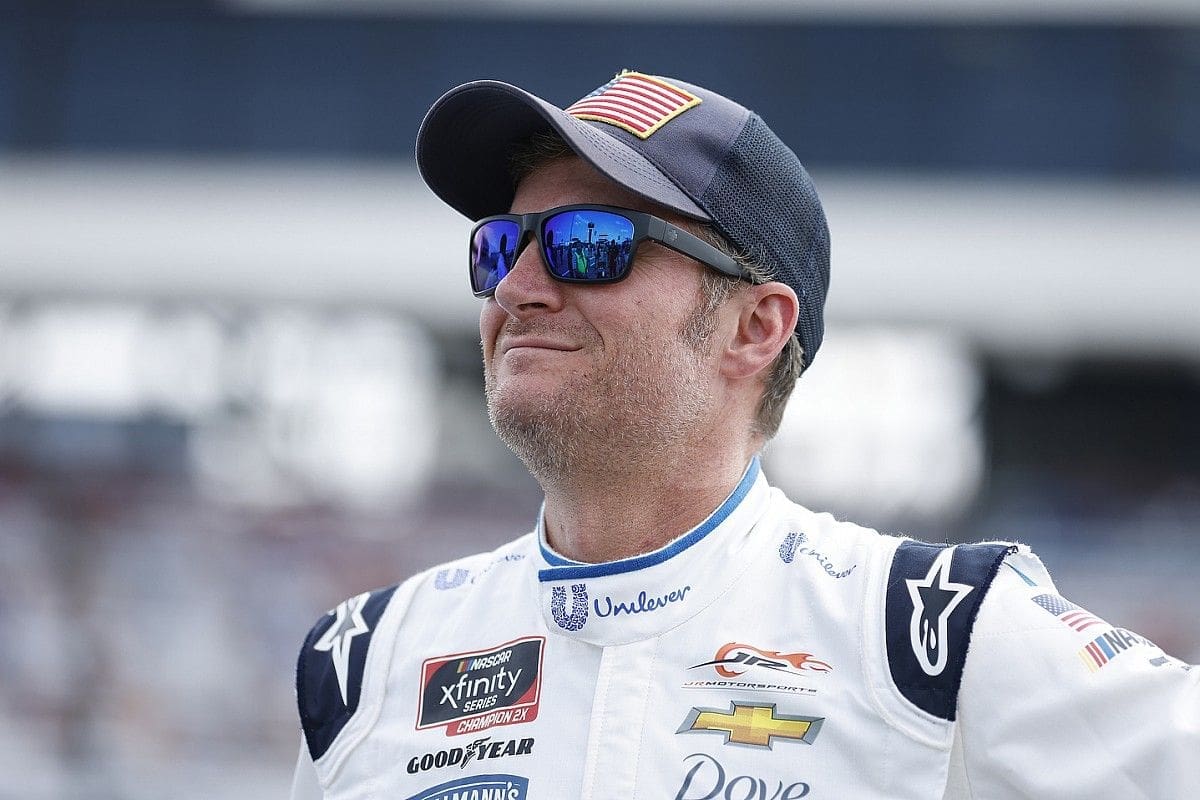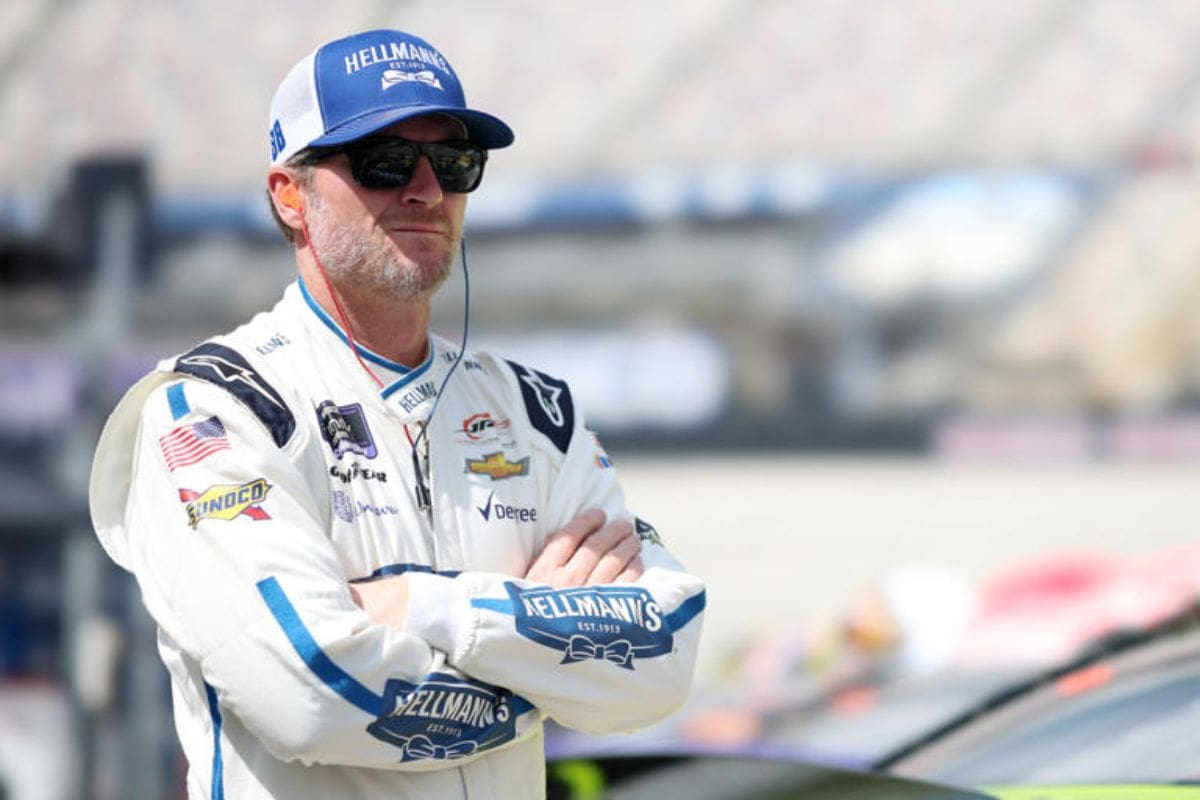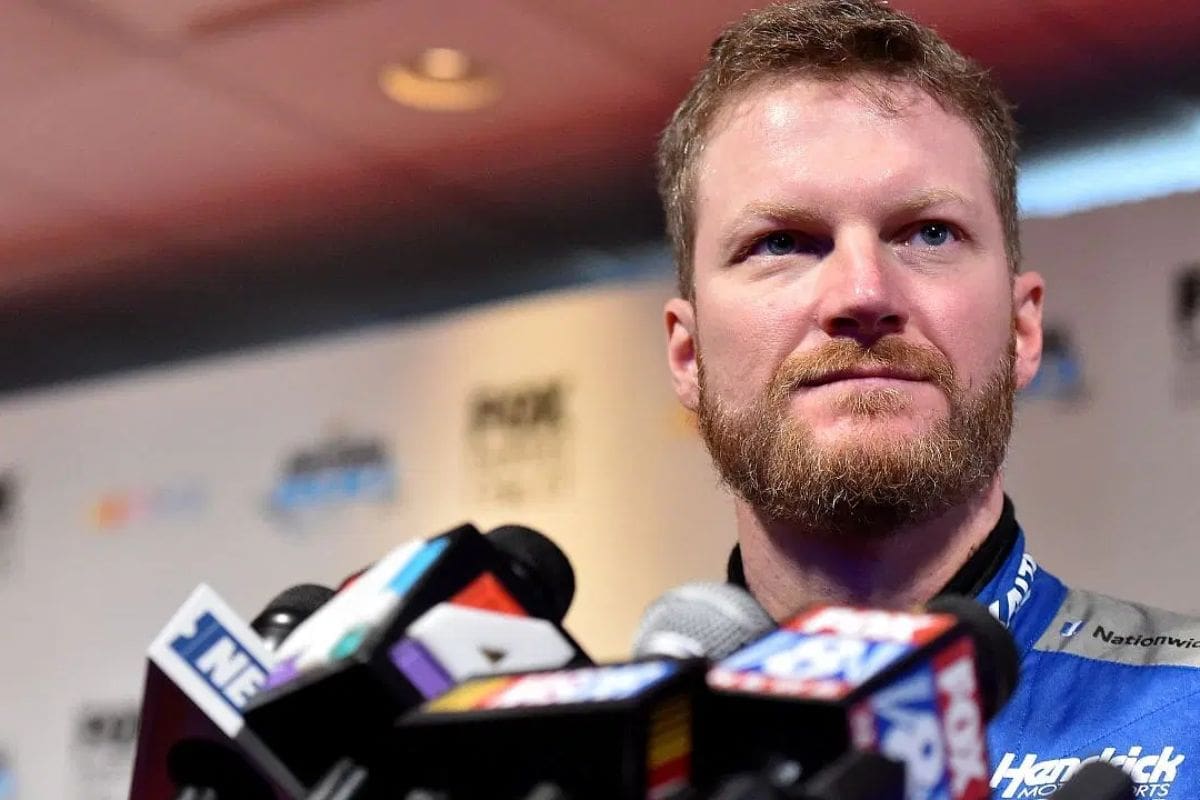Amy Earnhardt Slams Dale Jr.’s Boat Investment: Amy Earnhardt’s frank remarks regarding Dale Jr.‘s boat acquisition have sparked discussion about the complexities of financial decision-making within relationships. Her assertion that “this damn boat still stinks” highlights her concern over what she perceives as a misallocation of resources, especially when the family already owns a functional houseboat. This situation raises significant questions about the balance between personal passions and practical financial management, particularly in the context of Dale Jr.’s evolving enthusiasm for boating. How will this tension influence their future decisions?
Key Highlights
- Amy Earnhardt criticized Dale Jr. for purchasing a new houseboat, deeming it an unnecessary expense given their existing watercraft.
- She expressed frustration about the new boat’s condition, emphasizing it doesn’t meet their expectations.
- Amy believes their financial priorities should focus on essentials rather than discretionary spending like a new boat.
- Dale Jr. has evolved his view on boating, seeing it as a source of family bonding and enjoyment rather than a financial burden.
Dale Earnhardt Jr’s Approach to Spending
Dale Earnhardt Jr. adopts a measured approach to spending, balancing his substantial family fortune with a cautious mindset that often steers him away from impulsive purchases.
Despite the wealth he inherited from his father, the legendary Dale Earnhardt, Jr. has cultivated a financial philosophy that emphasizes restraint and prudence. He acknowledges the lessons learned from his father’s business insight, recognizing that while his father was savvy, he occasionally fell prey to impulsiveness, particularly when it came to extravagant purchases such as a yacht.
This awareness shapes Earnhardt Jr.’s spending habits, as he consciously avoids the pitfalls of reckless expenditure. However, even with his generally prudent outlook, he admits to moments of weakness, particularly in relation to boats—a passion instilled in him by his father. This duality in his financial behavior reveals the complexities of balancing familial influences with personal responsibility.
For instance, while evaluating the costs associated with his wedding and honeymoon, he remained critical and reflective. Yet, he ultimately succumbed to the allure of a houseboat, which features unique and abstract elements.
Amy Earnhardt’s Reaction to the Tennessee Boat
Amy Earnhardt expressed her discontent with the recent purchase of a houseboat in Tennessee, viewing it as an unnecessary expense amidst their existing watercraft. Her frustration stems from the belief that such a discretionary purchase does not align with their financial priorities.
“This damn boat still stinks.” – amy
While Dale Jr. may have been drawn to the new boat for its amenities, particularly the microwave that gave it a homelier feel, Amy sees it as an unneeded addition to their fleet. The couple already owns a houseboat, which, in her opinion, should suffice for their recreational needs.
This situation highlights a broader debate about spending priorities within relationships, particularly regarding luxury items like boats. Amy’s perspective emphasizes the notion that not all expenses carry equal weight; some represent notable life events, while others are merely indulgent.
Moreover, the choice to invest in another boat raises questions about the criteria used to evaluate such purchases. For Amy, the existing houseboat serves its purpose as a social gathering spot, while the new acquisition appears to be more about convenience than necessity.
Dale Earnhardt Jr’s Evolving View on Boats
Over time, Earnhardt Jr. has developed a deeper appreciation for boats, shifting from skepticism to enthusiasm as he reflects on his father’s passion for them. Initially, he questioned the wisdom behind his father’s yacht purchases, as they seemed at odds with the business-savvy persona of the Intimidator. However, through his experiences and collaboration with notable figures like Jeff Burton, Earnhardt Jr. began to explore the allure of boat ownership.
As he investigates deeper into the boating world, Earnhardt Jr. recognizes it as a place for friendship, relaxation, and family bonding—values that resonate with his own experiences. This evolving perspective demonstrates not only his personal growth but also a connection to his father’s legacy. The progression from skepticism to appreciation highlights the multifaceted nature of boat ownership, transcending mere financial considerations to embody a rich tapestry of familial heritage and shared experiences.
Dale Earnhardt Sr’s Influence and Boat Enthusiasm
The profound influence of Dale Earnhardt Sr. on the boating culture of his era is evident through his passionate involvement and the fellowship it fostered among fellow enthusiasts. A notable example of this influence is demonstrated through a story shared by Jeff Burton, who recounted how Earnhardt Sr. took charge when Burton expressed interest in purchasing a boat. This anecdote highlights not only Dale Sr.’s deep knowledge of boating but also his willingness to guide others in maneuvering the complexities of boat ownership.
During the 1990s, a distinct pattern emerged among those in the racing community, where boating became a shared passion. Key West emerged as a favored destination, marked by mock fishing tournaments that brought together notable figures such as Big Bill, Helton, and Richard Childress. These gatherings exemplified the friendship and competitive spirit that characterized the era, with Dale Sr. at the helm of these social interactions.
Earnhardt Sr.’s approach to boats was not merely about leisure; it reflected a tactical mindset. He kept the yacht business out of the limelight, emphasizing financial prudence. This decision underscores his understanding of the potential risks associated with boat investments, a lesson that resonates even today.
Dale Earnhardt Jr’s Modern Perspective on Boats
Dale Earnhardt Jr. approaches boat ownership with a modern perspective, viewing it as a cherished recreational pursuit rather than a financial burden. Unlike many who see boats as investments fraught with risks and costs, Earnhardt perceives them as vehicles for leisure and connection, paralleling the friendship found in Denny Hamlin’s basketball tournaments. This shift in mindset highlights a broader cultural acceptance among professional athletes to prioritize personal enjoyment over fiscal apprehensions.
While Earnhardt maintains a prudent approach to his finances, ensuring that his children’s future remains secure, he allocates a specific budget for his boating interests. This financial demarcation reflects a desire to engage in life’s pleasures without jeopardizing long-term stability. By embracing a hobby that fosters relaxation and social interaction, he demonstrates a balanced approach to wealth management and personal fulfillment.
Earnhardt’s perspective resonates with a growing number of individuals who seek to redefine leisure activities in the context of modern life. The emphasis on recreational value over monetary return highlights a shift towards enjoying life’s experiences in the moment. In this light, boats become more than mere investments; they transform into instruments of joy and shared memories, reinforcing the importance of leisure in a demanding professional landscape.

News in Brief: Amy Earnhardt Slams Dale Jr.’s Boat Investment
The ongoing debate regarding Dale Jr.’s recent boat purchase emphasizes the complexities often encountered in financial decision-making within relationships.
While Dale Jr. accepts his passion for boating, Amy Earnhardt’s concerns reflect a desire for fiscal responsibility and prioritization of existing resources.
This dynamic demonstrates the broader challenge of reconciling individual interests with shared financial goals, highlighting the need for effective communication and compromise in managing personal investments and recreational pursuits within a family context.
ALSO READ: Dale Earnhardt Jr.’s Wife Takes on His Superstitions: “He Just Likes My Attention”



